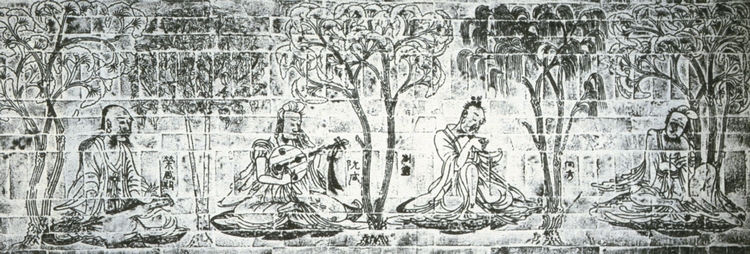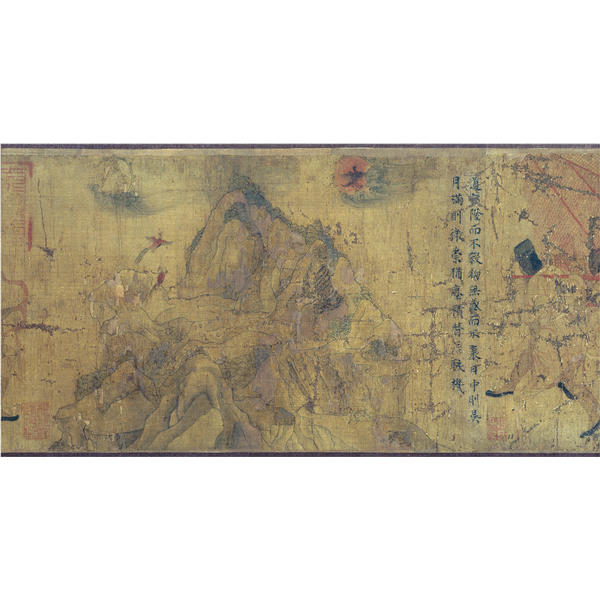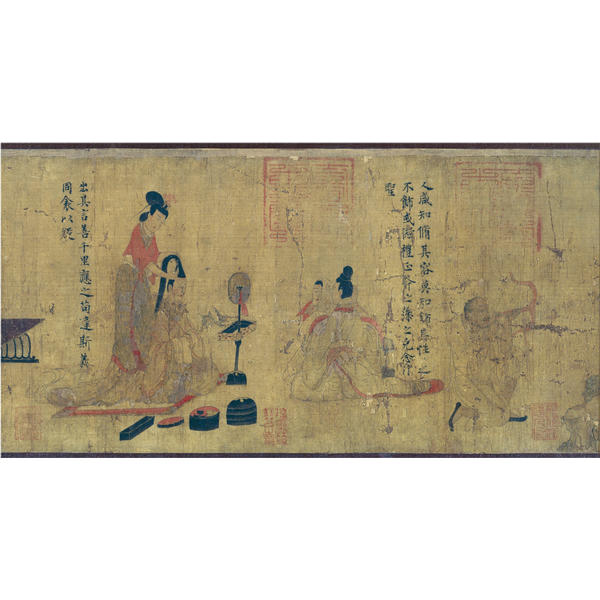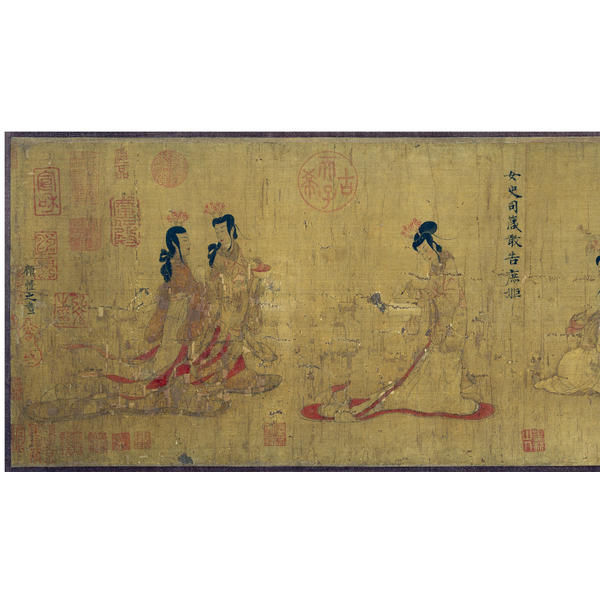Cards In This Set
| Front | Back |
 5 |
Seven Worthies of the Bamboo Grove (rubbing), E. Jin, late 4th-early 5th century; stamped bricks, from a tomb near Nanjing
|
 5 |
Gu Kaizhi (c. 345-c. 406), attributed to, Admonitions of the Instructress to Palace Ladies; handscroll, ink and color on silk; 5th century. scene2
|
 5 |
Gu Kaizhi (c. 345-c. 406), attributed to, Admonitions of the Instructress to Palace Ladies; handscroll, ink and color on silk; 5th century. scene3
|
 5 |
Gu Kaizhi (c. 345-c. 406), attributed to, Admonitions of the Instructress to Palace Ladies; handscroll, ink and color on silk; 5th century. scene4
|
 5 |
Gu Kaizhi (c. 345-c. 406), attributed to, Admonitions of the Instructress to Palace Ladies; handscroll, ink and color on silk; 5th century. scene5
|
 5 |
Gu Kaizhi (c. 345-c. 406), attributed to, Admonitions of the Instructress to Palace Ladies; handscroll, ink and color on silk; 5th century. scene6
|
 5 |
Gu Kaizhi (c. 345-c. 406), attributed to, Admonitions of the Instructress to Palace Ladies; handscroll, ink and color on silk; 5th century. scene7
|
 5 |
Gu Kaizhi (c. 345-c. 406), attributed to, Admonitions of the Instructress to Palace Ladies; handscroll, ink and color on silk; 5th century. scene8
|
 5 |
Gu Kaizhi, attributed to, Nymph of the Luo River, handscroll, ink and color on silk; 6th century (11the century copy)
|
 5 |
Wang Xizhi (344-386), “Orchard Pavilion Preface,” E. Jin, 353 AD, running script.
|
 5 |
Yan Zhenqing (709-785), Family Record (rubbing); Tang, 8th century, regular script.
|
 5 |
Huaisu (725-785), “Autobiographical Essay.” Tang, 777, wild cursive script.
|
|
|
Plan
of Tang capital Chang’an, Shaanxi province, 7th-10th century,
|
|
6
|
“Royal charger,” stone relief from the Zhao Mausoleum of Emperor Taizong, 630s, Xi’an, Shaanxi province.
|
|
6
|
Yan Liben (c. 600-673), “Thirteen Emperors.” Tang, 7th century, handscroll, ink and color on silk.
|



